First President
Dr. Fred W. Turner
1965 - 1979
Interim, 1982-83
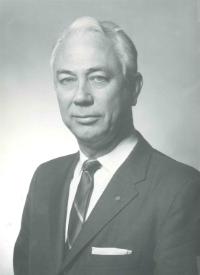 Dr. Fred W. Turner, director of instructional services and the number two official in the Department of Education, was selected in September 1965 to be the College's first President.
Dr. Fred W. Turner, director of instructional services and the number two official in the Department of Education, was selected in September 1965 to be the College's first President.
Turner was an easy choice for Advisory Committee member John Pigott. “We felt with his experience in education (he also was a high school teacher and principal), that he would be the ideal choice for president at TJC.”
As the College's founding President, Turner was responsible for planning and building the new college from the ground up -- write the curricula and course descriptions, hire faculty and staff and provide direction for the architect, among numerous other responsibilities.
“He was exceptionally thoughtful, a true ambassador for the College,” Pigott recalled. “He always made sure that the Department of Education had money for Tallahassee Junior College. I really enjoyed working with him. The pick of Fred was ideal.”
Students were his highest priority. He was often directly involved in the advisement and registration process and frequently sought out student views on matters concerning the College.
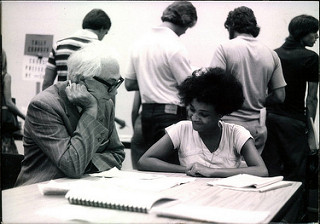 “I’ve never seen a man who works better with people—people of all kinds. And he gets the job done—easily, quietly, no fanfare. He just gets it done,” State School Superintendent Tom Bailey was quoted in the Tallahassee Democrat when Dr. Turner's selection was announced.
“I’ve never seen a man who works better with people—people of all kinds. And he gets the job done—easily, quietly, no fanfare. He just gets it done,” State School Superintendent Tom Bailey was quoted in the Tallahassee Democrat when Dr. Turner's selection was announced.
After setting up the general education-transfer program, Dr. Turner turned his attention to establishing high-quality programs in the occupational area. Throughout his 13 years as President, Dr. Turner placed great emphasis on maintaining high academic standards, obtaining top-quality faculty and support personnel, keeping student costs low, developing only those programs for which there is community need and staying within the often-limited financial resources.
Dr. Turner served until 1979, but returned as interim president for the 1982-83 academic year. He retired in 1983.
Second President
Dr. Marm M. Harris
1979 - 1982
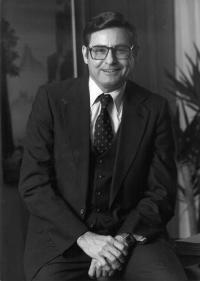 Dr. Harris, president of a large community college in Omaha, Nebraska, took over in 1979 as TCC's second president.
Dr. Harris, president of a large community college in Omaha, Nebraska, took over in 1979 as TCC's second president.
“We believe Dr. Harris is the best choice to lead TCC into the 1980s,” Board Chairman Charlie Macon said. “Dr. Harris has a national reputation as a leader and community college builder.”
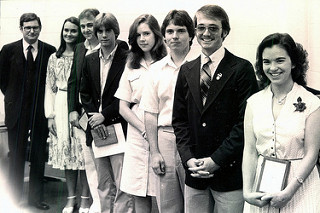 Among accomplishments during his tenure were the establishment of a foundation to seek financial support beyond that provided by the state and of an artist series to provide additional cultural opportunities and experiences for students and for the community.
Among accomplishments during his tenure were the establishment of a foundation to seek financial support beyond that provided by the state and of an artist series to provide additional cultural opportunities and experiences for students and for the community.
The Lifetime Sports Complex, providing a facility for intercollegiate, intramural and fitness programs, was built. Its unique fabric domes are a campus landmark.
Harris left in 1982 to become special assistant to the Commissioner of Education for Community College Affairs.
Third President
Dr. James H. Hinson, Jr.
1983 - 1995
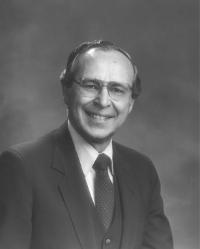 Dr. Hinson, chancellor of the Virginia Community College System, was named TCC's third president in 1983.
Dr. Hinson, chancellor of the Virginia Community College System, was named TCC's third president in 1983.
In a letter to the editor of the Tallahassee Democrat, Dr. Carl M. Kuttler, Jr., president of St. Petersburg Junior College, said “Tallahassee has brought great honor to Florida in naming Dr. Hinson as president. His reputation in academic circles is A plus. Above all, he is a man of high integrity and will serve the college and your community well.”
During his tenure, TCC received the best legislative funding support in the history of the College and enrollment more than doubled. Hinson expanded the Foundation and re-established an athletic program. Reaffirmation of accreditation was achieved twice under his leadership.
Major facility additions during Hinson's presidency included a major new classroom building, state-of-the-art science labs, a new administration building and a new library. Other buildings were renovated and or expanded and athletic facilities were developed. The size of the campus was increased from 64 acres, the smallest in the state, to nearly 200.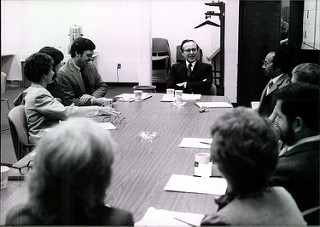 The TCC Gadsden Center in Quincy was acquired, and Academic Support, to help students prepare for college-level work, and Extended Studies, to take classes to the community, were established during his tenure.
The TCC Gadsden Center in Quincy was acquired, and Academic Support, to help students prepare for college-level work, and Extended Studies, to take classes to the community, were established during his tenure.
In 1994-95, TCC had the highest faculty salary average among Florida community colleges. During Hinson's presidency, no faculty member was lost to another college or university, except for promotion.
In action by the District Board of Trustees, the TCC Administration Building was renamed the James H. Hinson, Jr., Administration Building in recognition of his 12 years of service to the College.
He retired in 1995.
Fourth President
Dr. T.K. Wetherell
1995 - 2001
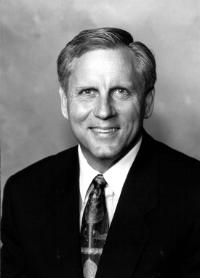 Dr. Wetherell, who took office in June 1995 is credited with overseeing the College’s growth and evolution into one of the state’s premier community colleges. He is also credited with more than doubling the gross square footage of the campus, overseeing the transition and the further development of the Pat Thomas Law Enforcement Academy.
Dr. Wetherell, who took office in June 1995 is credited with overseeing the College’s growth and evolution into one of the state’s premier community colleges. He is also credited with more than doubling the gross square footage of the campus, overseeing the transition and the further development of the Pat Thomas Law Enforcement Academy.
Under Wetherell’s direction TCC implemented more than 50 major workforce development programs of study; a GED/Adult Education program; a web-based A.A. degree; technology innovation that leads the state’s community college system; and awarded the highest percentage of A.A. degree graduate transfers to four-year institutions in the state.
He also fostered the relationship with Flagler College, Barry University, and Embry-Riddle Aeronautical University to offer four-year baccalaureate degree college courses on campus and made it a priority of his administration to have TCC actively involved in the community through volunteers and community-based initiatives.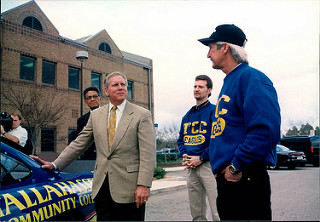 One of Wetherell’s most notable projects was the JOB GUARANTEE program, which promised an A.S. degree graduate would receive a job offer or a tuition refund. TCC was the only community college in the nation at the time to offer such a guarantee.
One of Wetherell’s most notable projects was the JOB GUARANTEE program, which promised an A.S. degree graduate would receive a job offer or a tuition refund. TCC was the only community college in the nation at the time to offer such a guarantee.
“Without his leadership, TCC would not have been able to accomplish so much, so quickly, with such outstanding quality,” said Dr. John Payne, one of the original Board Members who hired Wetherell. “He has met or exceeded every goal the Board envisioned.”
Wetherell left TCC in 2001 to become the president of Florida State University.
Fifth President
Dr. William D. Law , Jr.
2002 - 2010
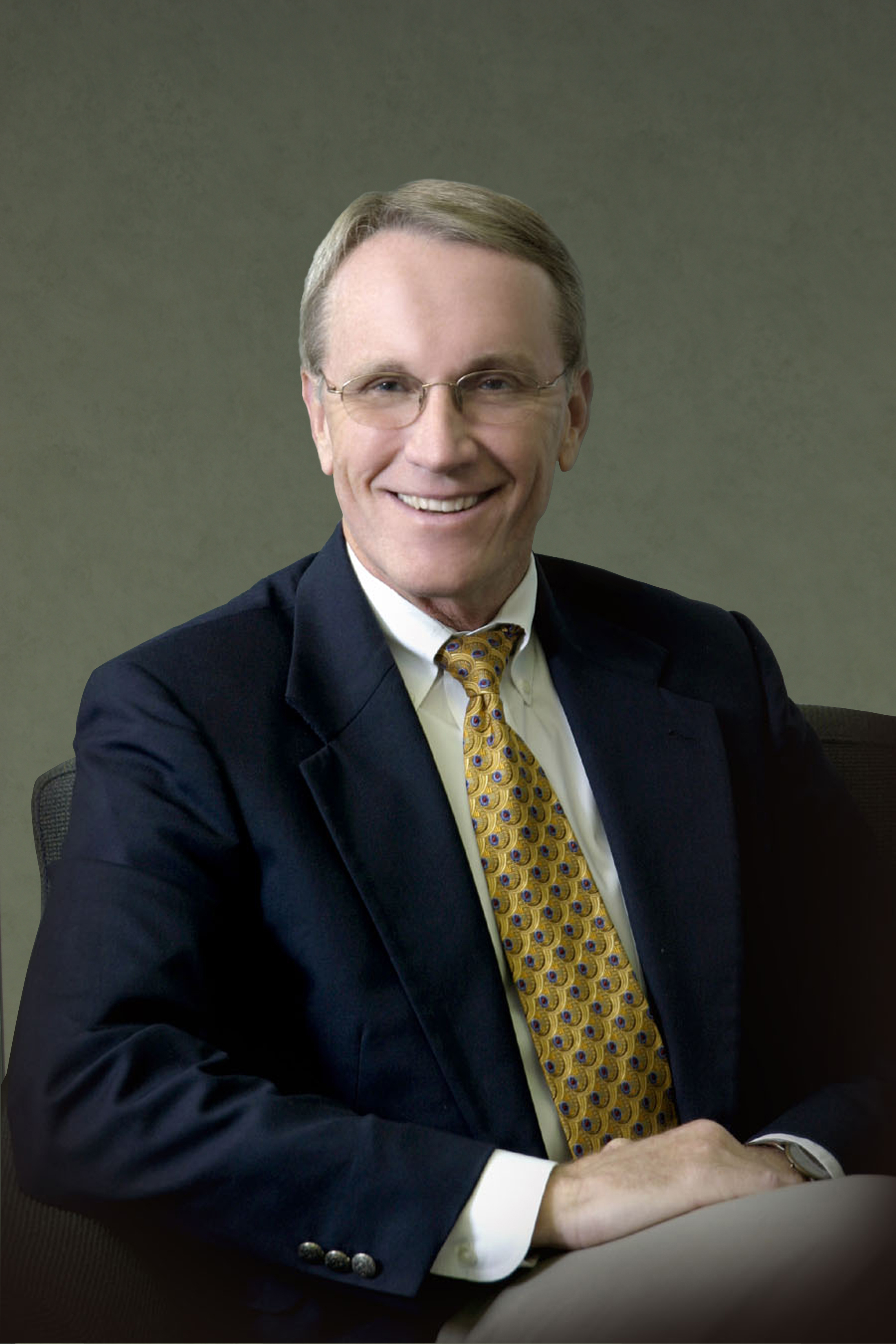 The District Board of Trustees named Dr. Law the College's fifth President after a nationwide search. He began work May 1, 2002.
The District Board of Trustees named Dr. Law the College's fifth President after a nationwide search. He began work May 1, 2002.
Law had served as the founding President of Montgomery College in Conroe, Texas, since 1992. At MCCC, he was responsible for planning, managing and implementing a $50 million construction budget and directing a national recruitment effort for 200 faculty and staff members. He also created the organizational structure and led the development of the new college’s first academic programs.
During his first two years at TCC, Law established partnerships and strong bonds with local governmental and civic leadership and enhanced opportunities for state employees to advance through TCC educational programs. 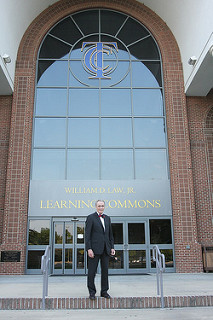 With the opening of the Economic and Workforce Development Center, TCC began to reach its full potential in this essential service to business, industry and area workers.
With the opening of the Economic and Workforce Development Center, TCC began to reach its full potential in this essential service to business, industry and area workers.
Law led an aggressive building program and land acquisition to transform the Pat Thomas Law Enforcement Academy into the nation’s premiere law enforcement training center, the Florida Public Safety Institute. He also encouraged development of anti-terrorism training to help agencies respond to homeland security needs.
Under his leadership, the TCC Foundation attracted its single largest gift for scholarships and launched a $10 million capital campaign.
He left TCC in 2010 to become president of St. Petersburg College.
Sixth President
Dr. Jim Murdaugh
2010 - Present
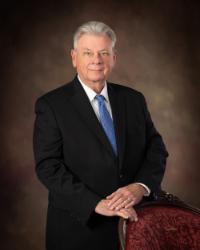
Dr. Jim Murdaugh was selected as the sixth president of Tallahassee Community College on October 18, 2010. Previously, he served as assistant vice president at the College’s Florida Public Safety Institute, a role he had served since 1999.
From the outset, Dr. Murdaugh set a bold and personal vision: to make the Tallahassee State College the college of choice for students, the employer of choice for faculty and staff, and the partner of choice for the community. As Board Chair Eugene Lamb Jr. noted, “Jim believed the college would thrive if he created an environment in which faculty and staff feel empowered to apply their talents, implement creative solutions, and contribute their own vision to the College’s mission.”
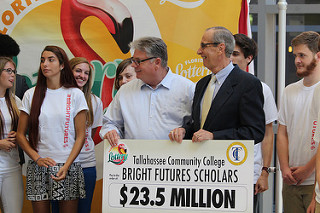 Notably, Dr. Murdaugh led the College through a historic moment: the transition from Tallahassee Community College to Tallahassee State College, reflecting the institution’s expanded impact, growing offerings, and evolving role in the region.
Notably, Dr. Murdaugh led the College through a historic moment: the transition from Tallahassee Community College to Tallahassee State College, reflecting the institution’s expanded impact, growing offerings, and evolving role in the region.
Throughout his tenure, the College has earned significant state and national recognition, including designation as an Achieving the Dream Leader College of Distinction (2022) and receiving the Leah Meyer Austin Award in the same year – one of ATD’s highest honors. The National Association for Community College Entrepreneurship named TSC its Entrepreneurial College of the Year (2025). TSC is a four-time national winner of the Best and Brightest Companies to Work for (2022-2025)
Dr. Murdaugh has guided transformational growth across the institution, overseeing milestones such as the completion of the Ghazvini Center for Healthcare Education, the creation of the Wakulla Environmental Institute, and the College’s Oyster Aquaculture Program. He strengthened pathways to Florida State University and Florida A&M University through the Aspire and Ignite transfer programs. Under his leadership, TSC became the first college in the Florida College System (FCS) to serve as a charter school authorizer and the first FCS institution to host a Day at the Capitol.